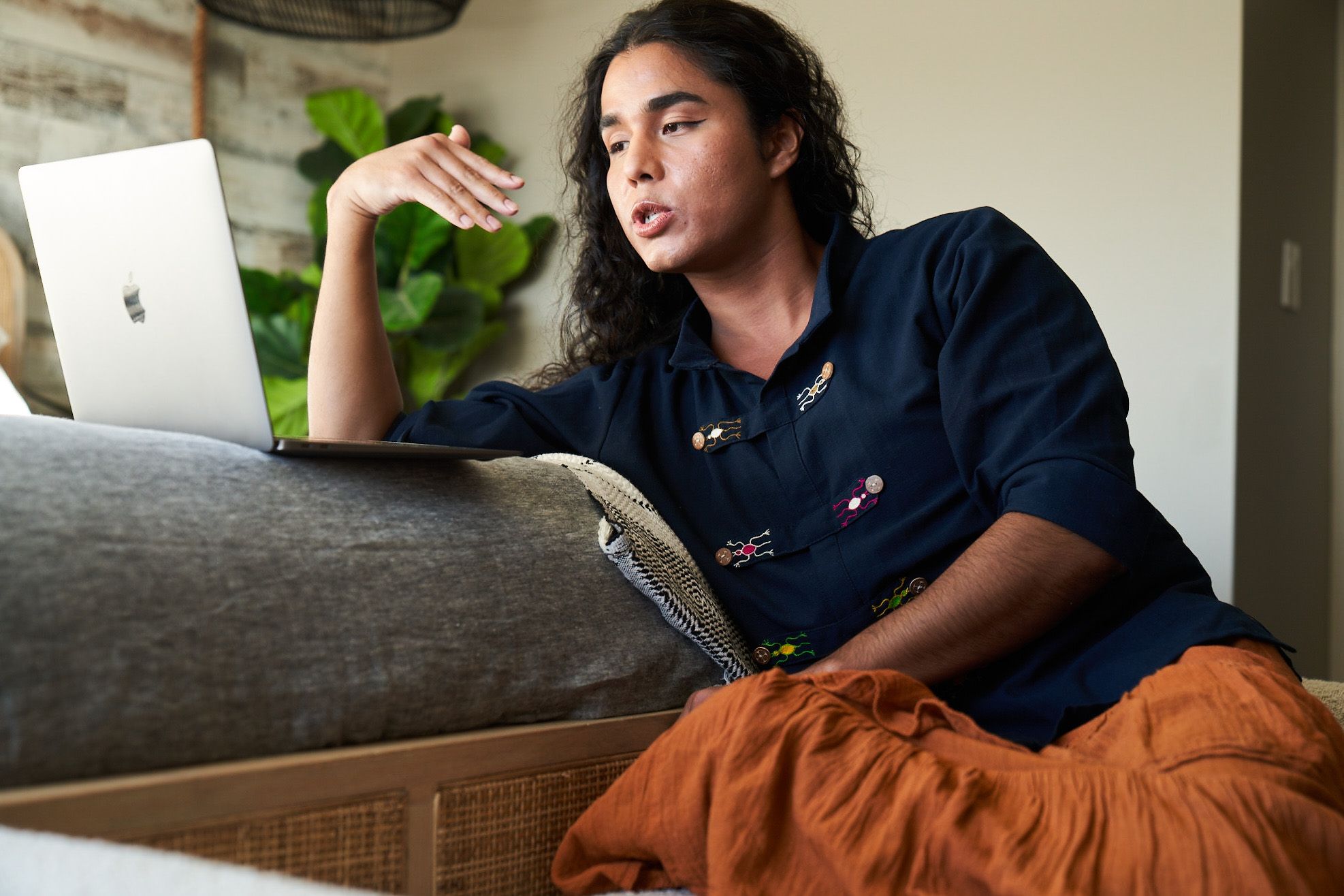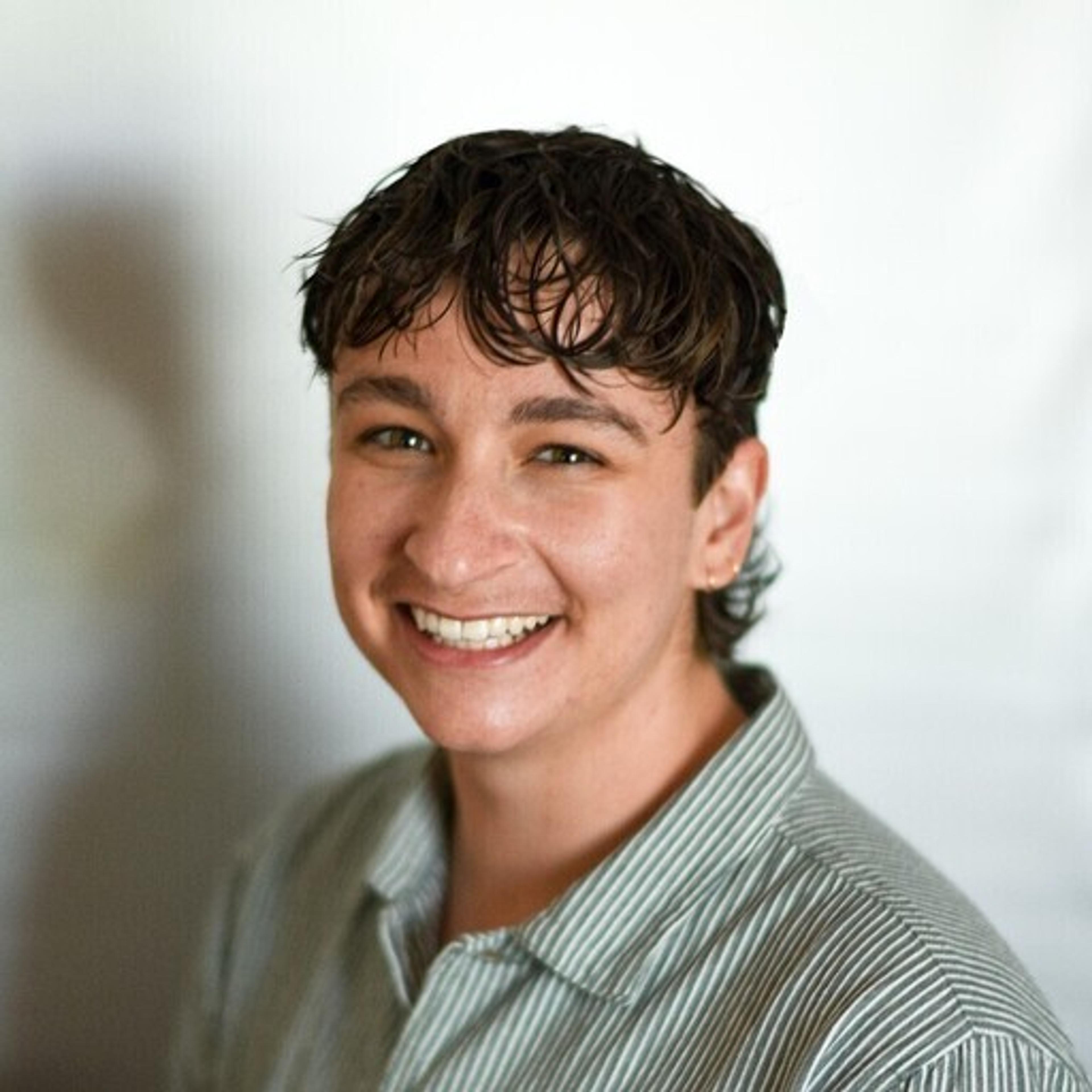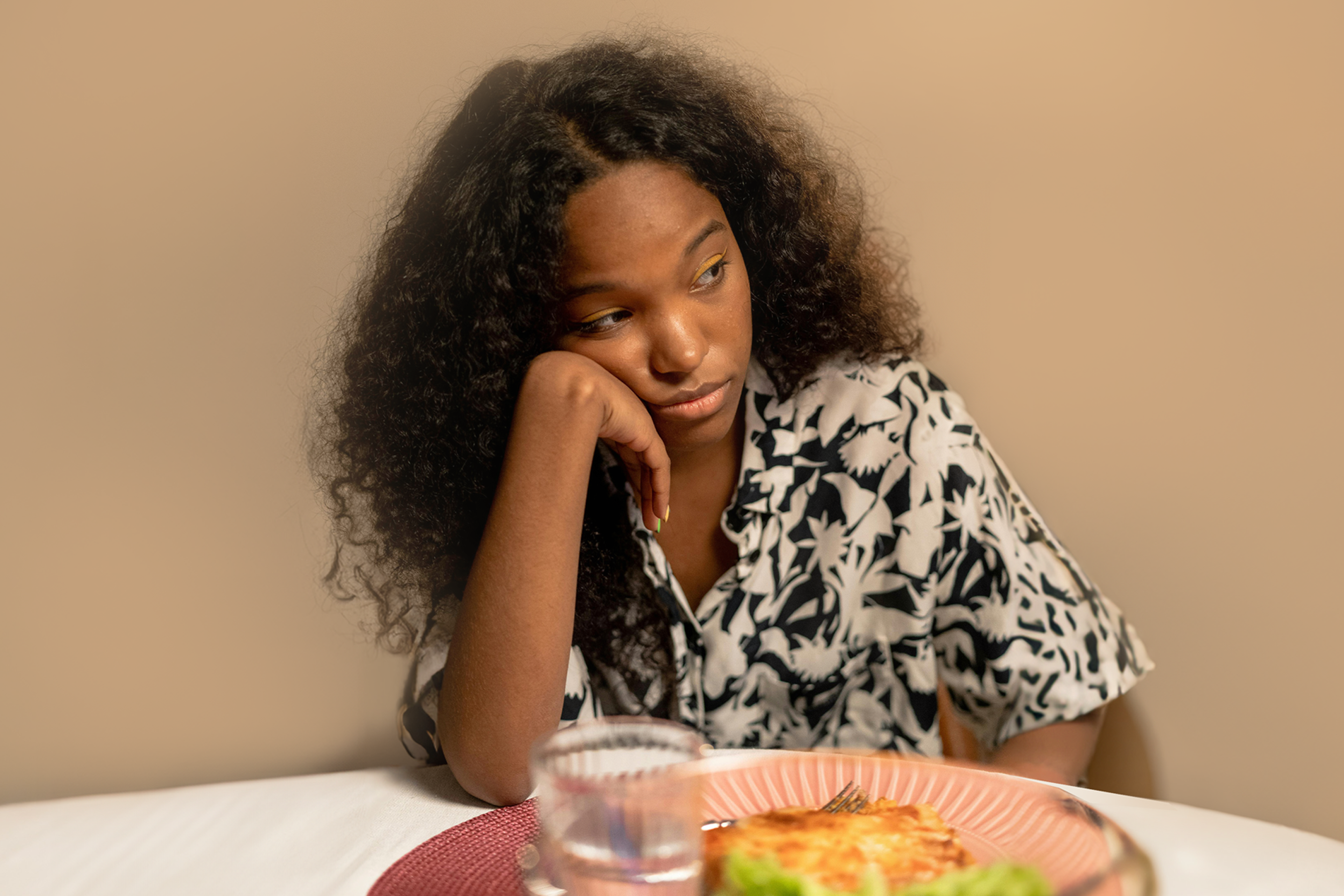
If you’re worried that you or a loved one may be struggling with an eating disorder but feel discouraged by traditional treatment options, you’re far from alone. Traditional, in-person eating disorder treatment can be expensive and inconvenient, and often these programs have long waitlists. For these reasons and others, more and more people are exploring virtual alternatives. Not only is it just as effective, virtual eating disorder treatment can also have unique benefits, like keeping patients connected to their communities and teaching them to use new coping skills in their everyday lives.
This is the foundation of our model at Equip: to provide virtual, evidence-based eating disorder treatment that leads to real results and lasting recovery at home.
But since virtual eating disorder treatment is a recent innovation, people seeking care are understandably curious about what it would actually feel like in practice. If you’ve never experienced it before, it can be hard to picture how virtual treatment can make a real, tangible impact in your day to day life.
Considering eating disorder treatment can be a daunting process, but knowing what to expect can help you make an informed choice as well as alleviate anxiety. We spoke with Cara Bohon, Senior Vice President of Clinical Programs at Equip, to give a simple breakdown of what you can expect from our at-home treatment program.
The first week: Starting treatment at Equip
Before a patient can begin treatment at Equip, it’s important that they’re determined to be medically stable. The Equip team works with the patient, and their family if needed, to obtain medical clearance from their doctor. Our team also verifies insurance coverage. This can all happen immediately after your free consultation—Equip has no waitlist. Once a patient is cleared for treatment, they can begin sessions with their care team.
At the beginning of treatment, each patient is matched with a dedicated five-person care team that includes a therapist, a registered dietitian, a medical provider, a peer mentor (someone who has recovered from an eating disorder) and a family mentor (someone who has supported a loved one through recovery).
For younger patients:
In the first week, younger patients will meet with their therapist, dietitian, and medical provider alongside their family members. This family involvement is key, because Equip uses family-based treatment (FBT), which studies show is the leading treatment modality for young patients. FBT is based on the radical idea that healthy family members are the people best-suited to help their loved one recover. Because of the virtual format, patients and family members can join in from different locations if needed.
“During these initial appointments, the patient’s therapist, dietitian, and medical provider will learn more about the history of the eating disorder and assess for other mental health or medical conditions,” says Bohon. The patient will also meet with their peer mentor individually, someone who has lived experience recovering from an eating disorder. Family members will also meet independently with their family mentor, which is someone who has experience supporting a loved one into eating disorder recovery.
For adult patients:
For adult patients, the first week is typically more of an independent experience. The patient has initial one-on-one sessions with their therapist, dietitian, medical provider, and peer mentor in order to get to know their care team and share more in-depth information about their eating disorder history and symptoms.
While adult patients aren’t required to involve loved ones in treatment, doing so can be incredibly helpful. Supports, which could mean family members, spouses, colleagues, or friends, are welcome to join patient sessions, and they can also be matched with their own mentor who has helped a loved one recover from an eating disorder. If an adult patient doesn’t want to involve loved ones at first, their treatment team can help them identify who to incorporate in their recovery journey—and how to do so—later on in the treatment process.
The first 1-6 months of treatment: What a typical week looks like
“After the first week, care becomes individualized to meet the needs of each patient,” says Bohon. For the first few months of treatment, most patients continue with weekly sessions with their therapist, dietitian, and mentor, and schedule one-off sessions with their medical provider as needed. These sessions with different providers range from 25-50 minutes each.
Groups and classes are also available to patients and their loved ones to provide additional support and skills. For example, Equip offers identity-specific support groups such as BIPOC, gender non-conforming, and athlete groups, which allow patients to connect with others who share similar experiences. There are also groups for caregivers and siblings of varying ages, as well as groups for learning new skills, such as nutrition or dialectical behavioral therapy (DBT) skills, which research shows can help reduce eating disorder behaviors and co-occurring anxiety or depression.
During the first few weeks or months in treatment, a patient may meet with every member of their team and attend a group or two, but as treatment progresses and the patient begins to be more engaged in their outside life and less controlled by their eating disorder, they might attend fewer sessions. The care team and patient work together collaboratively to decide when to taper down sessions, — or increase sessions again if necessary.
6 months and beyond: Progressing through treatment
“At Equip, we measure how a patient is progressing through treatment based on how their symptoms change,” says Bohon. As eating behaviors change and improve, treatment adapts to meet the patient’s needs at the time. This can look a bit different depending on the patient’s age.
For younger patients:
For younger patients going through FBT, there’s typically a process of gaining more independence as treatment progresses. Family is typically quite involved for them in the first few months of their treatment journey, often plating and supervising meals and snacks throughout the day. Research shows this initial hands-on approach can improve long-term treatment outcomes. This amount of involvement starts to reduce as time goes on and the patient feels more confident navigating meals on their own.
Similarly, a younger patient may not have as many individual sessions with their therapist at the start of treatment. This is because a malnourished brain isn't as receptive to therapy as a nourished one, so eating disorder therapy is generally much more effective once eating habits are normalized. So at first, treatment focuses more on addressing eating disorder behaviors (such as restrictive eating, bingeing, or excessive exercise) than the thoughts and feelings surrounding those behaviors, and family members may be more present during sessions. As time goes on, the patient may meet more one-on-one with their therapist and care team, and goals may shift to deal with other aspects of the eating disorder, such as emotional or relationship triggers.
For adult patients:
Adult patients typically do more individual sessions from the beginning. As the patient becomes more comfortable in their treatment, they may decide to invite more of their loved ones into the process. It can be helpful for loved ones to receive education from support groups and their family mentor so they can better understand eating disorders and how to support someone who’s recovering. This involvement of supports can be crucial to protecting against relapse, as it helps patients build a safety net of knowledgeable loved ones.
Like younger patients, treatment for adult patients typically focuses more on behavior earlier on, and then shifts to more psychological and emotional issues such as body image, interpersonal relationships, and co-occurring conditions like anxiety or depression.
The unique benefits of at-home treatment
No two recovery journeys are exactly alike, as treatment is tailored to each person’s needs. And in the same vein, each patient may experience unique benefits to getting treatment at home. This is something Bohon has witnessed in her time at Equip.
“I’ve seen patients be able to better understand what making nourishing meals look like in their own kitchens. Providers learn more about patients' interests by seeing art and posters in their rooms. Families get specific guidance for adjusting mealtime environments,” says Bohon.
Still, some benefits are universal. Studies have shown that virtual eating disorder treatment can help increase access to care. It saves patients and their families from having to relocate for treatment, take time off of school or work, and from countless hours commuting or sitting in waiting rooms. Patients can get treatment while staying connected to the things and people that matter and build a sustainable, recovery-supporting life from their own home.

- Levinson, Cheri A., Samantha P. Spoor, et al. “Pilot Outcomes from a Multidisciplinary Telehealth versus In‐person Intensive Outpatient Program for Eating Disorders during versus before the COVID‐19 Pandemic.” International Journal of Eating Disorders 54, no. 9 (July 10, 2021): 1672–79. https://doi.org/10.1002/eat.23579.
- Bankoff, Sarah M., Madeleine G. Karpel, et al. “A Systematic Review of Dialectical Behavior Therapy for the Treatment of Eating Disorders.” Eating Disorders 20, no. 3 (May 2012): 196–215. https://doi.org/10.1080/10640266.2012.668478.
- Hornberger, Laurie L., Margo A. Lane, et al. “Identification and Management of Eating Disorders in Children and Adolescents.” Pediatrics 147, no. 1 (January 1, 2021). https://doi.org/10.1542/peds.2020-040279.
- Steinberg, Dori, Taylor Perry, et al. “Effectiveness of Delivering Evidence-Based Eating Disorder Treatment via Telemedicine for Children, Adolescents, and Youth.” Eating Disorders 31, no. 1 (June 13, 2022): 85–101. https://doi.org/10.1080/10640266.2022.2076334.
- Couturier, Jennifer, Melissa Kimber, et all. “Efficacy of Family‐based Treatment for Adolescents with Eating Disorders: A Systematic Review and Meta‐analysis.” International Journal of Eating Disorders 46, no. 1 (July 23, 2012): 3–11. https://doi.org/10.1002/eat.22042.








